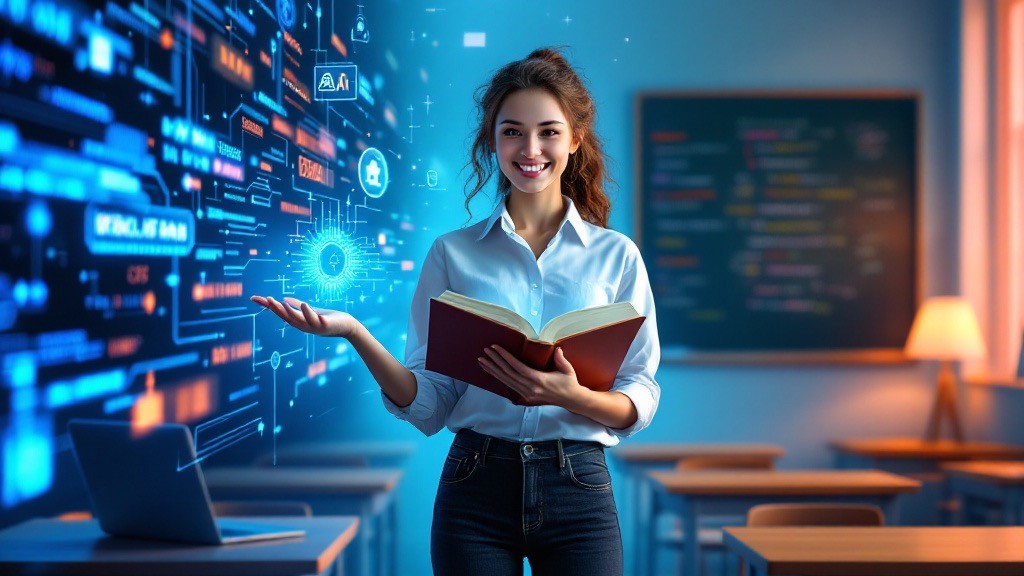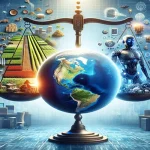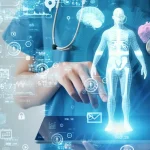Introduction
Artificial intelligence is transforming the global education system, redefining how knowledge is shared, evaluated, and applied. From adaptive learning platforms to AI-powered classrooms, the technology is not just a teaching tool — it’s a global equalizer in access to quality education.
Meanwhile, celebrities and political leaders are joining forces to revolutionize learning systems. Through mentorship programs, advocacy, and reform, they are shaping an era where education is powered by innovation, inclusion, and digital empowerment.
AI and the Reinvention of Learning Systems
AI has introduced a personalized approach to education that adapts to each student’s pace, style, and strengths. Intelligent systems analyze learning behaviors, offering real-time feedback and recommendations to maximize engagement and comprehension.
This transformation has allowed millions worldwide to access high-quality resources remotely, making AI-driven education a cornerstone of modern learning — especially in a post-pandemic world.
Global Policy and the Push for Digital Education Reform
Governments are realizing that traditional education models can no longer keep up with technological change. Nations like Finland, Singapore, and the UAE are implementing AI in national curricula to prepare students for an automated workforce.
At the same time, global education policies are focusing on digital literacy, critical thinking, and ethical AI awareness — ensuring that students become not only consumers of technology but responsible creators of it.
Celebrity Mentorship and Educational Advocacy
Celebrities have emerged as influential voices in educational reform. Figures such as Oprah Winfrey, Malala Yousafzai, and will.i.am have launched initiatives combining mentorship, technology, and access to global learning.
Their efforts highlight the importance of mentorship in an era dominated by digital learning — proving that while AI can teach knowledge, human role models still inspire purpose and passion.
AI’s Role in Closing Educational Gaps
AI-powered platforms are bridging the educational divide by providing personalized tutoring, automated grading, and multilingual translation tools. Students from remote or underserved areas can now access the same quality education as those in advanced cities.
However, unequal access to technology remains a challenge. To achieve true global education equality, governments and private sectors must ensure infrastructure and affordability accompany innovation.
Political Reform in the Age of AI Education
Education reform has become a political priority as countries seek to prepare future generations for AI-driven economies. Political leaders are investing in AI literacy programs, vocational training, and public-private collaborations to modernize national education systems.
These reforms are not only about economics — they represent a broader vision of preparing societies for ethical and informed participation in the digital future.
The Future of AI-Powered Learning and Global Citizenship
As AI evolves, the concept of education itself is changing. Lifelong learning, digital collaboration, and emotional intelligence are becoming as important as technical skills.
The future of education lies in balance — where technology enhances curiosity, and human connection ensures that learning remains a deeply social experience.
FAQs
How is AI changing education?
AI enables personalized learning, automates administrative tasks, and provides global access to quality educational resources.
Why are celebrities investing in education initiatives?
They use their influence and resources to expand learning opportunities, often focusing on technology access and mentorship.
What role does politics play in education reform?
Governments are shaping policies that integrate AI into curricula, preparing citizens for future digital economies.
Can AI replace teachers?
No, AI can assist and enhance teaching, but human educators provide empathy, guidance, and moral understanding that machines cannot replicate.
How can AI reduce global education inequality?
By delivering remote, affordable, and personalized learning solutions to students in underdeveloped and rural regions.
Conclusion
The fusion of AI innovation, celebrity advocacy, and political reform is redefining global education. It is building a world where learning is more inclusive, dynamic, and future-oriented than ever before.
Yet as technology becomes more central to classrooms, the greatest lesson remains timeless — education must always serve humanity, empowering minds not only to adapt but to inspire.





